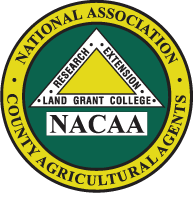ENGAGING FARMERS, RESEARCHERS AND EXTENSION TO INTEGRATE CLIMATE INFORMATION TO ROW CROP PRODUCTION SYSTEMS IN THE SOUTHEAST
Proposed by: Elena Toro Rogers
Presenters: Toro, E. M., Extension Agent, UF/IFAS Extension Suwannee County, Live Oak, FL 32064
Balkcom, K., Research Associate, Alabama Cooperative Extension, Headland, FL 36345
Bartels, W.L., Assistant Research Scientist, Department of Agricultural and Biological Engineering, Gainesville, FL 32611
Bauer, M., Extension Agent and County Director, UF/IFAS Extension Office, Lake City, FL 32025
Beasley, J., Department Head and Professor, Auburn University, Auburn, FL 36849
Birdsong, W., Extension Specialist, Alabama Cooperative Extension System, Headland, AL 36345
Dillard, B., Regional Extension Agent, Alabama Cooperative Extension System, Geneva, AL 36340
Dillard, J., Extension Agent, UF/IFAS Extension Jefferson County, Monticello, FL 32344
Duarte, D., Research Assistant, University of Florida, Gainesville, FL 32611
Johnson, L., Extension Agent, UF/IFAS Extension Escambia County, Pensacola, FL 32533
Kemerait, B., Plant Pathologist, University of Georgia, Tifton, GA 31793
Ortiz, B., Assistant Professor, Auburn University, Auburn, AL 36849
Wright, D., Extension Agronomist, University of Florida/IFAS, Quincy, FL 32351
Zierden, D., State Climatologist, Florida State University, Tallahassee, FL 32306
In the past, providing climate based scientific information and presenting it to farmers to use in their decision making process without an understanding of production systems has proven ineffective. Objectives: The Tri-State Climate Working Group was created to build a shared understanding of the impacts climate has on row crops and potential adaptive responses. Methods: The working group has created opportunities to exchange information among innovative farmers, Extension agents and specialists from Florida, Georgia and Alabama. The group meets twice a year to discuss climate related information, its effects on production systems and discuss the weather forecast. Questions discussed have included: How might a La Niña or an El Niño affect crop yields? How have growers adapted to seasonal variations and extreme climate events in the past? How might future changes in climate affect agricultural production in the southeast? Results: The group has met 9 times since 2010 and 142 participants have attended these meetings. The core group (30 participants) has increased knowledge of climate related effects and how they affect row crop production; seven technologies to reduce climate-related risks have been identified. Extension agents have gained a better understanding of perceived changes in climate and the informational needs of farmers to manage associated risks. Conclusions: Group participants are now able to share climate related information with other Extension agents, growers, local government decision makers, water management district personnel, insurance agents, and crop consultants. This effort has been led by the Southeast Climate Consortium and the Florida Climate Institute.
